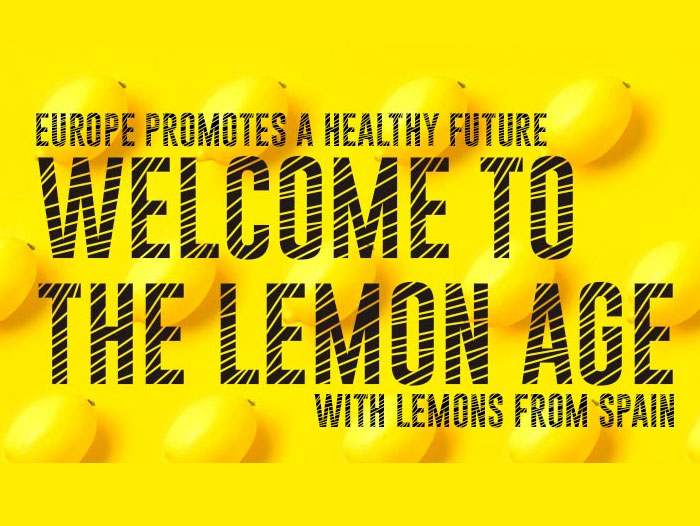European Lemons Are #1 in World Lemon Production for 2020
February 5, 2021 | 3 min to read

According to data from the World Citrus Organization, Europe led the world lemon production in 2020 with 1,871,011 tons produced. One of the keys to the success of the European Lemon is its production model, one that has exhaustive quality controls and complies with the three pillars of sustainability: environmental, social, and economic. From field to table, each phase of the process is regulated in accordance with the European sector’s regulations, the most demanding in the world.
It is evident that Americans appreciate these quality controls, as the consumption of the European Lemon in the United States increased during the 2018-19 season by 91% compared to a year earlier. In total, Americans consumed almost 7,000 tons of the citrus fruit, demonstrating their preference for high quality food, produced safely, and with clear traceability.
Supporting the global trend, the United Nations’ Food and Agriculture Organization has designated 2021 as the International Year of Fruits and Vegetables, raising awareness of the importance of these foods.
Premium quality from field to table
Lemon producers in Europe practice the most compliant techniques to ensure that both the tree and the fruit grow naturally, with the best light, temperature, and humidity conditions for their optimal development. They abide by a strict Manual of Active Materials and Recommendations in the Treatment for Lemons that dictates the work in the field and warehouses in accordance with European regulations, an effort endorsed by the GLOBALG.A.P. Certification.
Once the lemon tree has blossomed and the fruit is at its peak ripeness, harvesters examine each lemon to guarantee its maximum durability and flavor. The lemons are then calibrated and packaged in the warehouses for transport and distribution. When formalizing the sale of lemons between different operators, the sector follows the Code of Good Practices in Food Contracting, a standard guarantor contract that European leaders in lemon production, like Spain, are included within.
A lemon with its own identity
A highly qualified staff of about 20,000 members oversee these demanding tasks. The system has been recognized with the GRASP Certification, a seal that endorses key aspects of social sustainability such as human resource management, employee health and safety, training and development of workers, quality management, and adaptation to change and the environment.
The European lemon production model boasts the IFS Food seal, guaranteeing food safety and traceability. The IFS Food seal ensures quality, transparency and reduction of costs and times throughout the delivery chain from manufacturers to retailers. In addition, the European Lemon also holds the BRC certification, guaranteeing that the lemons produced comply with the most prestigious safety European standards worldwide. All leading to the production of a lemon with its own identity: natural, nutritious, and delicious.
About ‘Welcome to the Lemon Age’
Welcome to the Lemon Age, coordinated by AILIMPO (Lemon and Grapefruit Interprofessional Association) and co-financed by the European Union, promotes the positioning of the lemon produced in Europe so that consumers value and appreciate the virtues and benefits of lemon as well as the intrinsic and differentiating characteristics, such as sustainability and the certified quality guarantee of lemon from Europe.
